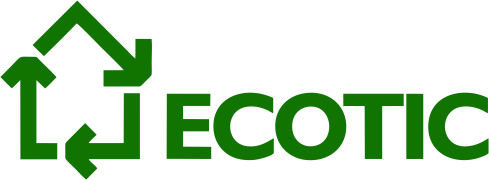„The perception of the population and producers on the collection of waste of electrical and electronic equipment” is a new study by the Institute of Public Policies and GDB Research, commissioned by ECOTIC. The results of the study were presented on September 28th 2016, at the Ministry of the Environment, Water and Forests.
„We are convinced that by stirring interest in all stakeholders involved in the process of WEEE valuation - public authorities, producers, transfer organizations and the people - we can cause major changes in the way this process leads to responsibility and a new European perspective - that of the circular economy, where waste is seen as a resource and not as a burden, ”said Elene Tudose, Director of IPP.
The study “The perception of the population and producers on the collection of waste of electrical and electronic equipment” was made based on data gathered via an online form, addressed to producers and distributors of electrical and electronic equipment registered at the National Agency for Environmental Protection . The margin of error is +/- 4,2%, and the fill-in period was August - September 2016.
Regarding the perception of the population, the study used data from a June 2016 study by GDB Research commissioned by ECOTIC on urban population, 1000 respondents by CATI method, margin of error 3,1%.
2016 is the first year Romania has a mandatory national target on WEEE collection: 40% of the average quantity of EEE marketed in the previous 3 years. Therefore, responsibilities are much higher for all those involved: producers, public authorities, sanitation companies and the people.
In this context, the study's conclusions show interesting data on producers' and people's perception and knowledge in Romania.
Producers
- 20% of EEE producers know the WEEE collection target for 2016 (40% of the 3 previous years ’average). Companies with many employees and higher quantities of marketed EEE are better acquainted with this subject - up to 50%.
- 50% of producers know the transferable and non-transferable responsibilities they have.
- 61% of producers think the last 5 years were characterized by a positive evolution in WEEE collection.
Authorities
- 29% of producers claim that the lack of education / information of the citizens are the most important barrier in reaching targets. They also feel that this obstacle should be the priority of public authorities.
Population
- The urban population is not aware of the national targets on recyclable waste collection. As regards responsibility on WEEE collection, the urban population thinks it lies with local authorities / sanitation companies (21%), followed by specialized companies (8.5%) and central authorities (7.2%).
Collective Organizations (OTR)
- The main source of information regarding legislative news in the field of WEEE is the collective organizations (75%);
- In their relationship to the collective organizations, producers are most happy with the support they offer (45%). Most producers state that they are content with their collective organizations.
“What I noticed from this study - which is very useful - is that all actors from across waste management flows attribute problems and responsibilities especially to the others and less to themselves. Yet the creation of a functional and sustainable market is conditioned by the real involvement of all stakeholders (producers, local public authorities and also final consumers), apart from the need for infrastructure, information and public awareness ” said Raul Pop, Secretary of State for the Ministry of Environment, Water and Forests at the end of the debate.
